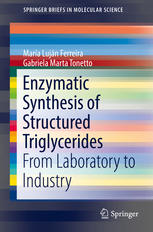

Most ebook files are in PDF format, so you can easily read them using various software such as Foxit Reader or directly on the Google Chrome browser.
Some ebook files are released by publishers in other formats such as .awz, .mobi, .epub, .fb2, etc. You may need to install specific software to read these formats on mobile/PC, such as Calibre.
Please read the tutorial at this link: https://ebookbell.com/faq
We offer FREE conversion to the popular formats you request; however, this may take some time. Therefore, right after payment, please email us, and we will try to provide the service as quickly as possible.
For some exceptional file formats or broken links (if any), please refrain from opening any disputes. Instead, email us first, and we will try to assist within a maximum of 6 hours.
EbookBell Team

0.0
0 reviewsThis brief presents the state of the art on enzymatic synthesis of structured triglycerides and diglycerides, focusing on glycerol as the substrate and covering interesterification of vegetable oils in one and two steps. It critically reviews the available literature on enzymatic and chemo-enzymatic synthesis of di- and triglycerides in one or more steps. The effects of the structure, length and unsaturation of the fatty acids are carefully considered, as well as the inhibitory potential of highly unsaturated complex fatty acid structures.
The brief also addresses acyl migration and the use of adsorbents, taking into account the most recent literature and presenting the problem in an industrial context. It discusses experimental and analytical problems concerning, e.g. the lab scale and the scaling up to bench and pilot plants. Several examples are presented, and their successes and failures are assessed. Biocatalysts based on lipases are analyzed with regard to problems of immobilization, stability on storage time and activity after multiple uses. The need for specific Sn-2 lipases is presented and strategies for optimizing Sn-2 esterification are discussed. Lastly, practical aspects are examined, e.g. lipase “leaching” with loss of activity, taking into account the latest findings on continuous and batch reactor configurations and presenting the advantages and disadvantages of each.